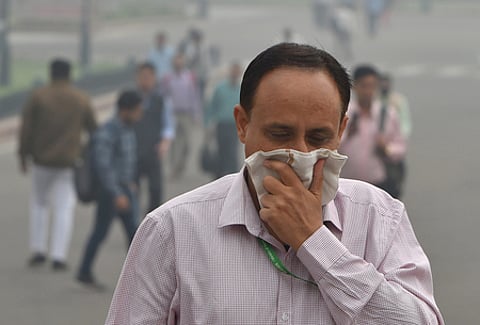

NEW DELHI: Over 1.8 crore people living in the national capital are set to lose an average of 11.9 years of life expectancy, compared to the World Health Organisation’s guidelines, states the latest Air Quality Life Index 2024 report.
The report, released by the Energy Policy Institute at the University of Chicago, highlights Delhi’s status as one of the most polluted regions in the northern plains.
Even by India’s own national standards, the residents stand to lose 8.5 years of life expectancy if current pollution levels persist, the report said, adding that Delhi, the most populous city in the country, holds the dubious distinction of being the most polluted city globally.
However, the report also said if India were to meet its national PM2.5 standards, life expectancy for its residents could increase by 8.5 years and if it met the WHO standards, nearly 12 years could be added to the life expectancy of Delhi residents.
PM2.5, a fine particulate matter that can penetrate deep into the respiratory system and trigger respiratory problems, is a significant health risk and a major contributing factor to pollution levels.
The report underscores that the annual PM2.5 standard in India is set at 40 micrograms per cubic metre, yet more than 40% of the population is exposed to air that exceeds this limit.
Particulate matter
However, the report also said if India were to meet its national PM2.5 standards, life expectancy for its residents could increase by 8.5 years and if it met the WHO standards, nearly 12 years could be added to the life expectancy of Delhi residents. PM2.5, a fine particulate matter that can penetrate deep into the respiratory system and trigger respiratory problems